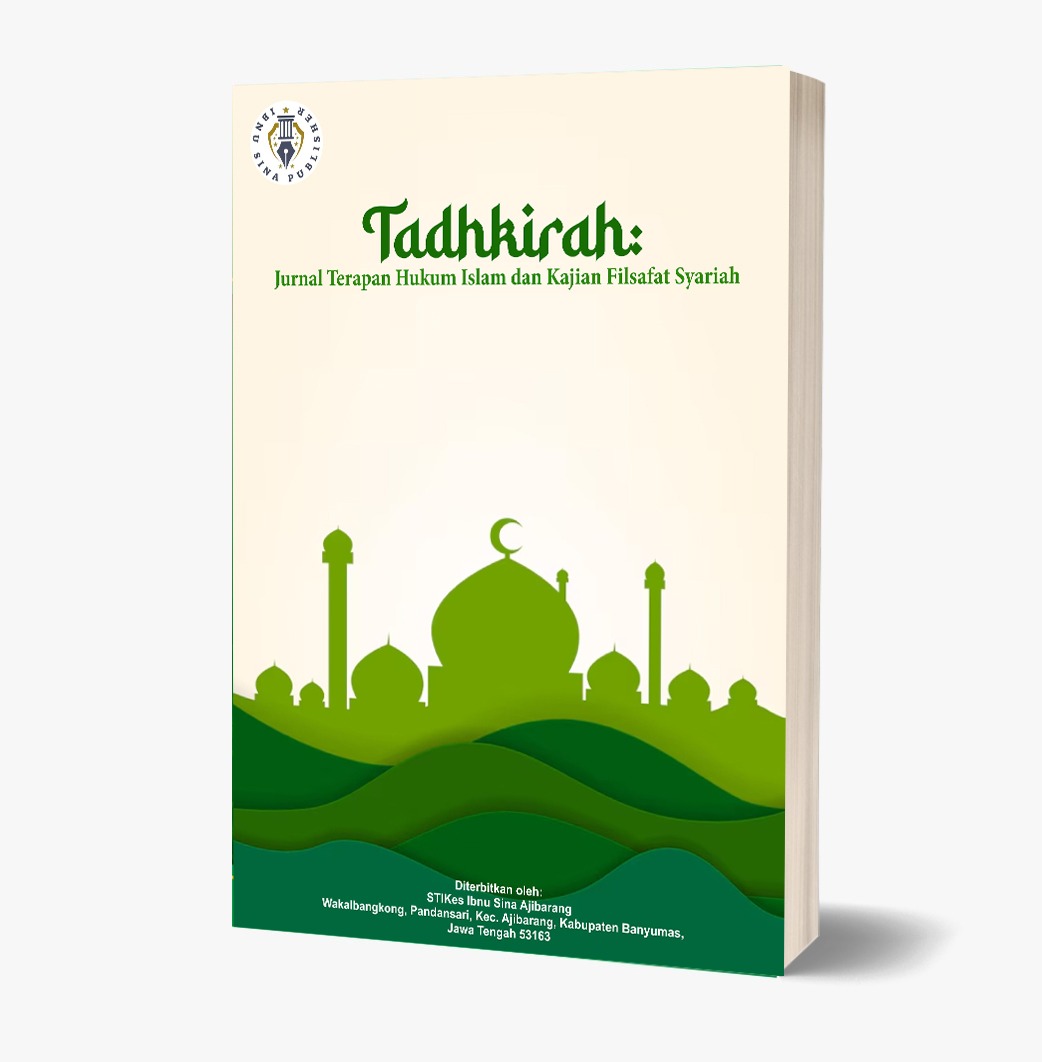Bekerja dalam Perspektif Hadis
DOI:
https://doi.org/10.59841/tadhkirah.v2i2.221Keywords:
Work, Hadith, ThematicsAbstract
Working in Islam is not merely an economic activity, but rather a form of social and spiritual responsibility that becomes an act of worship when carried out with sincere intention and lawful means. The Qur’an and the sayings of Prophet Muhammad ﷺ encourage Muslims to be self-reliant, work diligently, and preserve their dignity by avoiding dependence on others. Core values such as honesty, responsibility, and perseverance serve as the foundation of Islamic work ethics. This study employs a qualitative method using a library research approach. Primary data are sourced from authentic hadith collections such as Sahih Bukhari and Sahih Muslim, while secondary data are obtained from relevant scholarly literature. Thematic (maudhu’i) analysis is used through steps including collection of work-related hadiths, thematic categorization, contextual interpretation, and correlation with contemporary life practices. The findings reveal that Islam greatly upholds the importance of work. Hadiths emphasizing the virtue of earning through one’s own labor, the superiority of the giving hand, the prohibition of begging without necessity, and the essential role of intention in work, form the moral and spiritual foundation for Muslims to regard work as a path toward honor, dignity, and the pleasure of Allah ﷻ.
Downloads
References
Abū ‘Abdillāh Muḥammad bin Ismā‘īl bin Ibrāhīm bin al-Mughīrah bin Bardizbah al-Bukhārī al-Ju‘fī. (1311). Ṣaḥīḥ al-Bukhārī. al-Sulṭāniyyah.
Abū al-Ḥusain Muslim bin al-Ḥajjāj al-Qusyairī an-Naisābūrī. (1374). Ṣaḥīḥ Muslim. Maṭbaʿah ʿĪsā al-Bābī.
Al-Ghazālī. (2005). Iḥyā’ ‘Ulūm al-Dīn. Maktbah Imaratullah.
Ali, A. J., & Al-Owaihan, A. (2008). Islamic work ethic: A critical review. Cross Cultural Management: An International Journal, 15(1), 5–19. https://doi.org/10.1108/13527600810848791
Ali, M. (2018). Wawasan hadis tentang etos kerja. TAHDIS, 9, 28–53.
Al-Qurṭubī. (1384). Al-Jāmiʿ li-Aḥkām al-Qurʾān. Dār al-Kutub al-ʿIlmiyyah.
An-Nawawi. (1396). Syarḥ Ṣaḥīḥ Muslim. Dar Ihya al-Turas.
Asyhari, M. M., Achfriedo, C., Rohman, H. F., Muvid, & Basyrul, M. (2022). The concept of work in Islam. Abdurrauf Journal of Islamic Studies, 1(1), 134–147.
Badr al-Dīn al-ʿAinī. (855). ʿUmdah al-Qārī Syarḥ Ṣaḥīḥ al-Bukhārī. Dār Iḥyāʾ al-Turāts al-ʿArabī.
Cha, N. A., Misbahuddin, M., Ibtisam, I., & Herman, H. (2021). Tinjauan hukum Islam terhadap etos kerja. Minhaj: Jurnal Ilmu Syariah, 2(2), 131–148. https://doi.org/10.52431/minhaj.v2i2.406
Gufron, S. (2020). Pengertian hadis tematik dan sejarah pertumbuhannya. 1–13.
Hafidz, N., Kasmiati, K., & Diana, R. R. (2022). Pembiasaan nilai-nilai keagamaan dalam mengasah kecerdasan spiritual anak. Aulad: Journal on Early Childhood, 5(1), 182–192. https://doi.org/10.31004/aulad.v5i1.310
Harahap, B. I. (2023). Implikasi hadits istiqomah dalam semangat beragama (Analisis perspektif psikologi). Repository UIN, 234.
Hidayah, N., Rosidi, A. R., & Shofiyani, A. (2023). Konsep ikhlas menurut Imam al-Ghazali dan relevansinya terhadap tujuan pendidikan Islam. Urwatul Wutsqo: Jurnal Studi Kependidikan dan Keislaman, 12(2), 190–207. https://doi.org/10.54437/urwatulwutsqo.v12i2.957
Ibn Ḥajar al-‘Asqalānī. (1380). Fatḥ al-Bārī bi Sharḥ al-Bukhārī. Al-Maktabah Al-Salafiyyah.
Ibn Rajab al-Ḥanbalī. (1417). Jāmi‘ al-‘Ulūm wal-Ḥikam. Mu’assasah al-Risālah.
Khairullah, K., Taufiqurrahim, A., Rohman, E. N., Rahmawati, D., & Mufid, A. (2022). Etos kerja perspektif Al-Qur’an dan hadis. Jurnal Multidisiplin Madani, 2(3), 1093–1108. https://doi.org/10.54259/mudima.v2i3.458
Kurniawan, R. (2019). Urgensi bekerja dalam Alquran. Transformatif, 3(1), 42–67. https://doi.org/10.23971/tf.v3i1.1240
Nasibeh, S. (2025). Teladan Nabi Muhammad SAW dalam praktik pendidikan Islam moderat: Analisis hadits tentang sikap terhadap non-Muslim. Jurnal Substantia, 3(1), 720–730.
Nasution, M. T. (2018). Etos kerja dalam perspektif Islam. Jurnal Ihtiyath, 1(1), 524–540. https://doi.org/10.32505/ihtiyath.v1i1.376
Nofiyanti, T. P., dkk. (2022). Kewajiban nafkah suami terhadap istri dalam persepektif hukum Islam dan Undang-Undang No. 1 Tahun 1974 tentang perkawinan (Studi di Pengadilan Agama Sorong). Muadalah: Jurnal Hukum, 2(2), 160–170.
Sari, E. (2022). Langkah-langkah studi hadis tematik. Jurnal Al-Dirayah, 9(1).
Sohari. (2013). Etos kerja dalam perspektif Islam. iIslamiconomic: Jurnal Ekonomi Islam, 4(2), 1.
Supriyadi, S. (2017). Community of practitioners: Solusi alternatif berbagi pengetahuan antar pustakawan. Lentera Pustaka: Jurnal Kajian Ilmu Perpustakaan, Informasi dan Kearsipan, 2(2), 83.
Z. (2019). Bekerja dalam perspektif Islam. Tajdid: Jurnal Ilmu Keislaman dan Ushuluddin, 17(1), 87–97. https://doi.org/10.15548/tajdid.v17i1.115

















